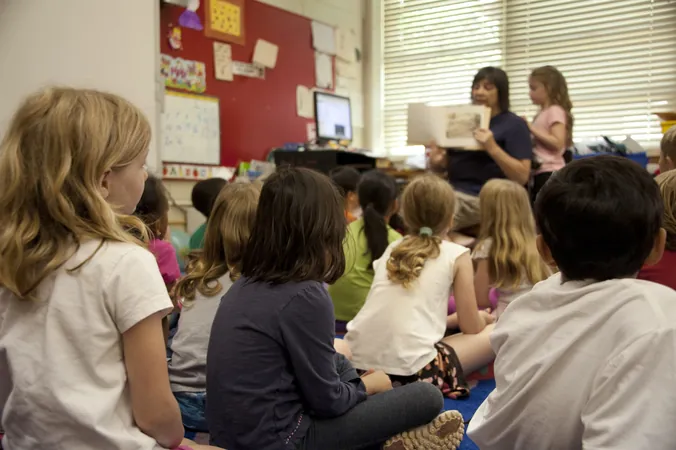
How School Structures Fail Children with Disabilities: Shocking Findings Revealed!
2024-10-01
A groundbreaking new study has revealed that the social structures within schools are creating significant inequalities for children with developmental disabilities. This alarming research highlights how conventional age expectations and the rigid organization of schools label these children as “atypical,” pushing them further away from receiving the quality support and understanding they truly need.
Dr. Katherine Gulliver from the University of Exeter and the University of Plymouth conducted the research through four case studies that examined the real-life experiences of children with developmental disabilities in various English primary schools. It was published in the prestigious British Educational Research Journal, shedding light on critical issues that often go unnoticed in mainstream education.
The study emphasizes that a school culture overly focused on progress and academic attainment is detrimental to the successful inclusion of all students, particularly those with disabilities. This "adult-centric" perspective neglects children's own views and experiences, ultimately hindering their educational journey and emotional well-being.
Throughout her research, Dr. Gulliver utilized extensive methods including photography activities, guided tours, and in-depth interviews, providing a platform for children whose voices are typically sidelined in educational discussions. She discovered that many of these children face challenges such as anxiety and difficulties in navigating their educational environment.
Is Your Child Struggling? Understand Their Needs!
Many children described intense discomfort due to overwhelming sounds and chaotic environments, as well as struggles with transitioning between classes. They expressed the need for support in coping with these changes, indicating a significant gap in the current educational framework that overlooks such needs.
The findings also record personal narratives of how children with developmental disabilities learn to adapt to the primary school environment, highlighting the potential roadblocks they face, including the strict adherence to classroom rules and routines. For instance, children's voices often remain unheard when they are constantly required to follow rigid instructions, limiting their opportunities for self-advocacy and expression.
Dr. Gulliver passionately stated, "We must listen to these young voices to fully understand what is valuable to them. Sadly, the prevailing school system fails to honor the lived experiences of children with developmental disabilities." She pointed out the complexity of how these children articulate their need for support, particularly in managing self-regulation and anxiety, stressing that recognizing their unique perspectives is crucial in creating a more inclusive and understanding educational environment.
Teaching assistants emerged as pivotal figures in this setting, celebrated for their roles in fostering a supportive atmosphere. They help children navigate their challenges at their own pace, allowing for personal growth and achievement. The study calls for a significant shift in how educators approach disability in the classroom, advocating for a more child-centered educational framework instead of one fixated solely on academic outcomes.
The Future of Inclusive Education: A Call to Action!
As schools grapple with the pressing need for reform, Dr. Gulliver's research serves as a clarion call to educators, policymakers, and society at large. Only by listening to the authentic experiences of students with developmental disabilities can we hope to create a truly inclusive educational environment. The time for change is now—let's ensure every child's voice is heard and valued in our schools!





 Brasil (PT)
Brasil (PT)
 Canada (EN)
Canada (EN)
 Chile (ES)
Chile (ES)
 España (ES)
España (ES)
 France (FR)
France (FR)
 Hong Kong (EN)
Hong Kong (EN)
 Italia (IT)
Italia (IT)
 日本 (JA)
日本 (JA)
 Magyarország (HU)
Magyarország (HU)
 Norge (NO)
Norge (NO)
 Polska (PL)
Polska (PL)
 Schweiz (DE)
Schweiz (DE)
 Singapore (EN)
Singapore (EN)
 Sverige (SV)
Sverige (SV)
 Suomi (FI)
Suomi (FI)
 Türkiye (TR)
Türkiye (TR)